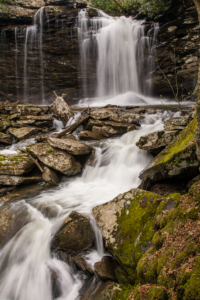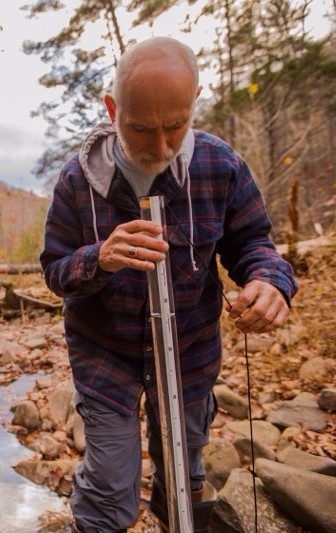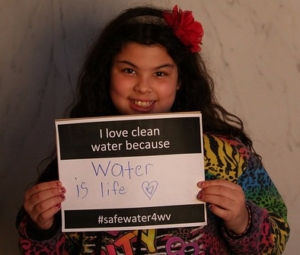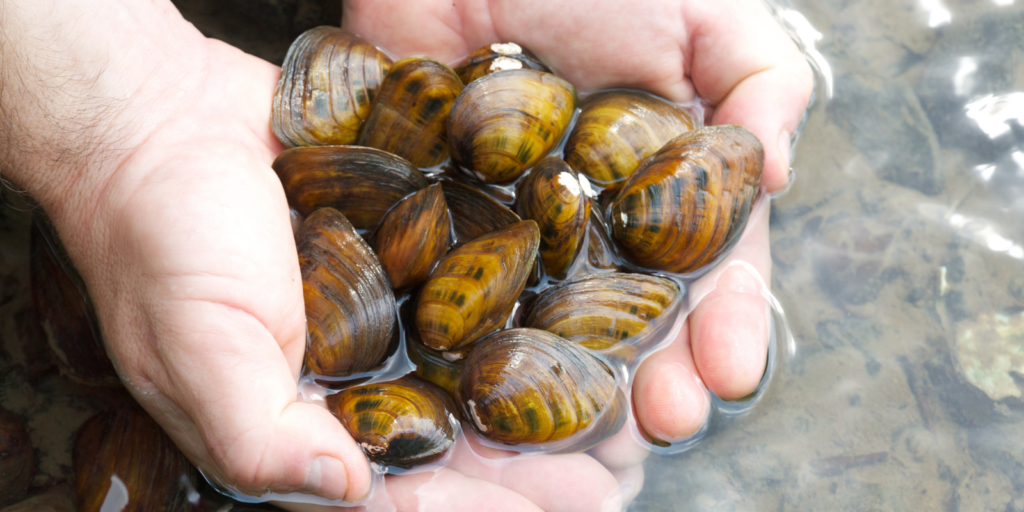WV Rivers News: Comment on WVDEP Rules, New Pipeline Report, EPA Enforcement
Keeping Clean Water a Priority During Uncertain Times
What a difference a month makes. Last time you received a WV Rivers’ e-newsletter the world was different. As we collectively navigate these uncharted waters, we wanted to share a few updates about our work and our commitment to you – our supporters.
Here at WV Rivers, we are in a fortunate position to keep our mission driven work moving forward with relatively little disruption. Our staff members have worked out of home offices since 2013 and we have the infrastructure and experience to keep our staff, and communities, safe while maintaining our role as the voice for West Virginia’s rivers and streams.
While we are all social distancing, the WV Rivers team is embracing new ways to connect with you virtually. We’re leaning into our creativity and hoping to come out of this difficult time with even stronger relationships with members of our clean water community.
One way we’re doing this is though our Facebook page. On Friday afternoons, team members are reading story books with clean water messages. Check out last week’s video here. We’re also planning to host Facebook Live Q & A sessions, hope you can join us!
No matter what happens in the coming months, you can rest assured that WV Rivers isn’t going to stop doing what we do best – advocating for safe, clean water for all West Virginians.
With gratitude,
The WV Rivers Team
Two Important WVDEP Rules Need Your Comments
Spring is a busy time for West Virginia’s water quality standards! There are two important rules related to our state’s water protections out for public comment. WV Rivers is here to share the facts and we’ve made it easy for you to submit comments on the proposals through our online commenting tool.
Biological Assessment Rule: Virtual Public Hearing on April 20
The first proposed rule up for public comment is a bit of déjà vu. You might remember commenting on the biological assessment rule last spring when WVDEP initially released the rule change. But after the comment period, WVDEP missed the deadline to file the rule with the Secretary of State, so now WVDEP is collecting public comments on the rule again.
WVDEP will be holding a virtual public hearing on the rule on April 20. Even if you do not plan to speak during the virtual hearing we encourage you to listen in – your presence shows the WVDEP that West Virginians care about water policy! Learn more about the virtual hearing here.
Click the photo above to watch a video of WV Rivers’ staff scientist, Autumn Crowe, breakdown the biological assessment rule.
Why is the biological assessment rule important? This rule defines how the WVDEP uses the presence of aquatic life to determine whether the stream is meeting the state’s water quality standards, and if it needs help to reduce pollution so it can support a healthy ecosystem. After analyzing WVDEP’s proposed rule, we’re disappointed WVDEP is once again ignoring recommendations to adopt a more scientifically precise method. Learn more about the biological assessment rule here and watch our video fact sheet on the rule here.
We’ve made it easy to submit comments! Click here to send your comments to WVDEP.
WVDEP Releases New Proposal on Human Health Protections in Water Quality Standards
On March 31 WVDEP released their revised proposal on human health criteria, or the rules that limit how much of a toxin can be in our drinking water sources before it harms our health. This is another policy that may spark déjà vu. You might remember that during the 2019 legislative session human health criteria was the hot button issue but the legislature delayed the sorely needed updates until 2021. Read a recap of the 2019 session here.
Late last year, WV Rivers submitted a comprehensive proposal to the WVDEP with four recommendations to set protective human health criteria. You can watch videos explaining our recommendations here.
Sadly, WVDEP has only adopted one of our recommendations in their proposal – they are using a more appropriate method to determine how much fish West Virginian’s eat. Right now, WV Rivers and our Water Policy Workgroup are analyzing WVDEP’s full proposal and will share information soon on the proposal’s implications. Read a recent blog on our 5 quick take-ways from the proposal here.
Keep an eye on your email for an action alert from WV Rivers with our full analysis and how you can submit your comments easily online!
New Report: Using Turbidity Standards to Protect Water Quality
One of the biggest threats from pipeline construction is increased sediment in our streams. This sediment muddies the water and once it settles silts over the stream bed smothering insects and other invertebrates that build the foundation of the aquatic food-web.
Citizen scientists in our water quality monitoring program use a measurement called turbidity to determine the clarity of a stream’s water. The more opaque the water, the more sediment is suspended in the water column. WV Rivers and our water quality monitoring program partner, Trout Unlimited, published a report detailing the effects pipeline construction has on turbidity in streams and the resulting impacts to aquatic life. The report investigates Virginia’s and West Virginia’s water quality standard for turbidity, and how regulatory agencies enforce the standard. Read the full report here.
WV Rivers Analysis: EPA Memo on Environmental Enforcement During Pandemic
Earlier this month you might have heard about a memo released by the EPA outlining their discretion in enforcing noncompliance issues resulting from the COVID-19 pandemic. This policy will be in effect starting March 13 and until further notice. Read the memo here.
WV Rivers was alarmed by EPA’s move to relax environmental regulations during a public health crisis. After analyzing the memo, we are relieved that some safeguards are still in place. The pandemic has the potential to disrupt routine operations and cause worker shortages.
The EPA will not seek penalties for violations dealing with monitoring and reporting. Exemptions to the regulations only apply to COVID-19 related disruptions. EPA will enforce criminal violations that result from intentional disregard for the law.
While EPA has relaxed some of their monitoring and reporting requirements, the WVDEP has stated that all rules, regulations, and permitting requirements remain in effect and they expect facilities to continue operation in a manner that protects public health and the environment. If facilities are unable to meet their requirements due to the pandemic, they must contact WVDEP and comply with EPA’s COVID-19 guidance. Read WVDEP’s statement on COVID-19 here.
As state and federal enforcement agencies adapt to the challenges of the pandemic, WV Rivers will continue to act as a watchdog to ensure our water is protected!
Setting the Stage for an Ohio River Comeback
Regrettably, the Ohio River has garnered the reputation of the most polluted river in the nation. WV Rivers is active on several initiatives to help the Ohio River and the 5 million people who depend on it as their drinking water supply.
WV Rivers’ executive director, Angie Rosser, serves as co-chair of ORSANCO’s Watershed Organization Advisory Committee which gives a voice to watershed organizations with in the Ohio watershed. Angie also serves on its Technical Committee which is currently studying issues such as harmful algal blooms, PFAS contamination, and mercury in the river.
Clubshell mussels are an endangered mollusk that make their home in the Ohio River. Photo by USFS.
Right now, the WOAC is providing input into a 2020-2025 Plan for the Ohio River Basin that prioritizes abundant clean water, healthy ecosystems and nature-based recreation opportunities. Together, we’ll put the mighty Ohio River on track for a comeback story!
WV Rivers in the News
West Virginia lawmakers focus on clean water legislation
WVDEP Releases Draft Water Quality Standards Update
Lawmakers ask state DEP, health officials to sample water supplies for toxins
Legislature calls for water source study in W.Va.
Environmentalists to lobby Congress for boost to Chesapeake Bay cleanup
EPA, West Virginia Sign Pact to Expand Efforts Supporting Clean Water, Healthy Farms
Dem. Lawmakers Advocate For Regulation And Research Of Water Contaminating Chemicals









